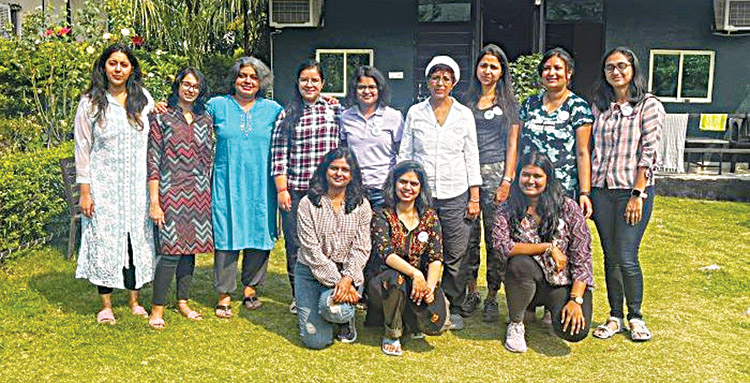New Delhi, Apr 25 (Mayank Nigam) The Centre for Global Affairs and Public Policy (CGAPP) is spearheading a comprehensive project, comprising an all-women team of 15 members, which aims at addressing the issues of plastic waste in the Ganga Basin. According to a statement issued here today, the project ’Tackling Plastic Pollution in the Ganga Basin,’ would comprise a research component, a solution component and an outreach component. Research would be conducted by an all women team in over 12 locations spread across India and Bangladesh, it said.
The solution component would include anti-plastic expos in Rishikesh and Varanasi and outreach would involve local communities and civil society organisations. The project would further feature a river expedition from Prayagraj to Varanasi by women researchers and a culminating summit in Dhaka at the end of the year, added the statement. It said the project aimed at initiating measures for effectively countering the dangers posed by effluents and microplastics currently choking the Ganga basin, and threatening the aquatic ecosystem and the environment at large. Research for this ambitious action plan would be held over 12 locations in India, including vital points in the Ganga Basin like Rishikesh, Prayagraj, Varanasi and other locations such as the Sunderbans, it added. The statement said two locations have been earmarked in Bangladesh, including Chandpur and the Sundarbans region in Bangladesh. It said a 220-km river expedition from Prayagraj to Varanasi, using solar-powered boats, would be held in collaboration with youth organisations, NGOs and urban local bodies to collect detailed data on plastic pollution. The first leg of the research would kick-start in Rishikesh on April 24 and culminate in a two-day expo, beginning April 29.
The “Rishikesh Ganga Anti Plastic Expo” would bring together start-ups, urban local bodies, domain experts, students, local personalities and community representatives as audience and panellists. It would feature roundtable discussion to explore solutions that could be deployed to address the problem of plastic pollution in the Ganga. The highlight of the project would be its all-women team, comprising 15 members, including 12 permanent team members and 3-4 local representatives from academic institutions, noted the statement. The group comprises women PhD scholars and graduate students specialising in various disciplines, ranging from urban planning, science and engineering, governance and architecture. The statement said the project research would be led by Mansee Bal Bhargava, National President of Water Resources Council. The research component sought to build upon the methodology used in the National Geographic Sea-to-Source Expedition held in 2019, while the solution and outreach component would add to this aspect to look at scalable solutions, including plastic alternatives and waste management, to address the issue of plastic pollution in the Ganga, it added.

